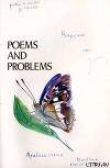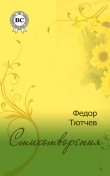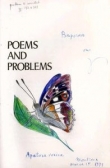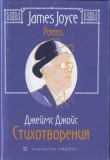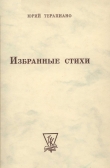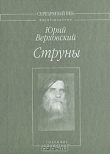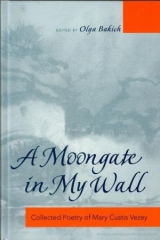
Текст книги "A moongate in my wall: собрание стихотворений"
Автор книги: Мария Визи
Жанр:
Поэзия
сообщить о нарушении
Текущая страница: 15 (всего у книги 19 страниц)
My dear, my dear,
Now that I have to go, and know I'm going,
There are so many things I have to say —
So many things that, without knowing.
I've left unfinished here
Till this last day —
Sit near me, listen, and perhaps together
We will recall, before I break the tether,
questions unanswered, prayers unspoken,
And if there is no time, perhaps my eyes
Will leave for you a token
Of sunlit skies
That we have watched together, and of dreams
That I have shared with you, and you with me!
This is a very vast and lonely sea
That I am set to sail, and yet it seems
That I am not afraid. The guiding hand
Of a wise Pilot comes to beckon me
Across the blue expanse to a far land
Of peace and calm and beauty.
You, my dear,
Staying behind, you must not ever fear
This life!
If I could only tell
As clearly, somehow, as a silver bell
Might ring through the clear air of a bright day,
That I will never really be away
From you; not ever…
Will you try
To walk on, bravely, though a clouded sky
May threaten, though above a barren field
Thunder may roll, please promise not to yield
To doubt – remember always, as you grope
In darkest thickets – there is always hope.
– I am a little weary. Will you bring
A glass of water for me? Make it cold.
Thank you. That's better…
There's another thing
You must remember – that I've always told:
There is no white or black or yellow race,
But only Human. All are made the same,
For it is not the color of the face
Or the variety of given name
That shape the heart and educate the mind;
It is not what you see, but what you find.
– Oh, love, it seems I'm only getting started,
And yet I feel that we will soon be parted,
1 tire so fast. Forgive me if I gasp,
Here, let me have your little hand to clasp
In mine for yet a little longer. Stay.
I have to finish what I want to say.
Because you are more generously blessed
Than most, you are not better than the rest,
Only more fortunate. So if you can,
Be kind and gentle to your fellow man,
As we are taught to be.
And oh, my dear,
Enjoy the wealth that you are offered here —
Sunrise – and music – and the shape of trees —
Soft growing grass – and world-encircling seas —
Love for a man – the work you have to do —
Friends travelling the very road as you —
I hope that you will live and toil and play
With all your heart, and all the time obey
Your faith in the great Presence over all,
Whether you win, or whether for a time
Your footsteps falter in the slime
Of difficulties, even if you fall,
Remember, dear, that with your faith and will
In days of darkness you are victor still.
It s getting late, and you should be in bed,
And surely there will be one more tomorrow —
When I am gone, don't think of me as dead,
Remember me with happiness, not sorrow …
But we shall talk again …
Good night, good night!
[1967]
540. «Somewhere…»
Somewhere
there is a gate that I must find and open,
take out the bolt and lilt the latch and push,
and then the road ahead will stretch away
smooth, clear and safe for me to walk at leisure;
a small white gate, wrought in a low white fence,
along the outskirts of this great dense wood.
There must be somewhere
in the tall brush and thicket on my trail
a mark, a sign, perhaps a broken twig,
a tree peculiarly bent, a stone
lying against another;
there must be somewhere
an indication, maybe even arrow
pointing that way, so that I may follow;
it cannot be that I have not remembered
those previous markings,
and have lost the trail.
[1960s]
541. «High in the air, the high blue air above us…»[242]242Variant in the last, line of the second stanza in the manuscript: «that we reach out to grasp».
[Закрыть]
High in the air, the high blue air above us,
where birds and men fly peacefully together,
for endless centuries, the long lost notes
of many songs have floated by, unheard
to living ears.
We have not yet
become quite strong enough to catch those songs
and hear and tame them for the world to know,
but they are there, for they were never lost
completely. And if sometimes, in the haze
along the fringes of this life
we think we meet
a sudden melody that we have never known,
barely distinguished words, perhaps a rhyme
that we reach out to touch —
we vainly strain, but all that we can feel
is some vague sense of beauty
created somewhere once, and waiting for us,
not quite completely lost,
nor yet recaptured.
[1960s]
542. «Can it be true, in hours of grief and anger…»
Can it be true, in hours of grief and anger
that all one's past will disappear afar
just like the soft sound of some forgotten music,
like in the dark of night a fallen star?
[1980s]
543–561 My China[243]243With notation on the manuscript of the cycle «My China»: «Some time years ago, probably in the 60s.»
[Закрыть]
Arranging the brushes, and picking the right
one to write a poem.
I put my brushes carefully, one by one,
into their respective cones
in the brass brush stand,
meticulously smoothing each sensitive tuft with my fingers,
to make a pinpoint end.
I pull out the small white bone latch
of my ink box,
lifting its black and gold silk lid.
The ink tablet, half covered with carved inscription,
lies before me.
I pull out the two white bone pieces
latching the powder-blue silk covers
of a small thick volume.
The ivory-white rice paper page
is blank.
The moon has set over the western horizon
and night fragrance is drifting into my window.
I pick a brush of the needed thickness,
touch the surface of water in a porcelain cup
and caressing the ink tablet gently,
write down a poem.
A favorite scroll on the east wall of my room.
Two ladies stand on an open marble surface,
and the mist of the April morning
swirls at their silken feet;
the verdure of the white-barked pines,
almost black against the still white sky,
clouds over the bright blue tiles
of the small pavilion.
Far in the distance, all sense of perspective lost
in the subtleties of the mist,
hang the curling cliffs of the mountains,
without top or bottom,
wrapped in the twisting and winding scarves
of the April mist.
In early spring, bright blossom liven
the clay walls of Tung-Chow-fu.
Around the ancient town of Tung-Chow-fu
a great grey wall of brick and earth was built
some centuries ago. A deep, wide moat
was dug and filled with water.
None but friends
could enter through the barred and guarded gate.
Now peace hangs sweetly over Tung-Chow-fu.
The wall has crumbled down in many spots,
and only kingfishers disturb the sleep
of aged willow trees that, drooping, touch
the lazy curling wavelets of the moat.
All there is green and quiet.
In the spring
it is a joy to cross the stepping stones
and climb the wall, and see the almonds bloom
scarlet against the background of the grey.
Listening to the evening stillness
at Wu-Chih-Mi.
At Wu-Chih-Mi the little local train
stops.
I step off and breathe the summer warmth.
At Wu-Chih-Mi there aren't many dwellings.
It dozes lying in its quiet valley
in summer twilight as the hills around it
turn rose and violet and transparent blue
before the night.
I walk across the green and soundless meadow
and soon I see the lanterns of the sky
reveal their silken brilliance one by one.
Alone I stand and listen to the stillness
at Wu-Chih-Mi
and watch the silver dipper
above the northern hilltops as it tips
to quench the thirsting of my day-parched soul
with the beatitude of simple peace.
Yalu: a river.
[Закрыть]
A field of wild iris, that few people know about.
Around the bend of the Yalu
where the cliffs come close to the sparkling, chattering water,
suddenly you come to an open meadow
all purple with wild iris.
This meadow is like a green jade bowl
held by cliffs on three sides
with a grove of birches framing the river bank on the fourth.
Tie your horse to a birch trunk; let him nibble
on the sweet wild strawberries at his feet. Look:
What peace, what silence!
No one here to pluck these myriad blooms of deep purple,
more plentiful than the grass,
evidently so carefully tended
by a kind gardener.
A grey town, full of people very busy living.
We sailed in a small river boat
up the wide canal on the way to Zo-Ssu
one April day.
We passed through a town
and sailed under its bridge,
a high curved stone bridge,
linking two halves of the town.
The bridge was grey, like the walls
of the houses on either side,
but a very busy life
was evident everywhere,
people selling their wares and walking about the streets,
meeting above on the bridge to enjoy the sun and to engage in
conversation,
women washing their clothes at the edge of the stream below,
and several naked children, happy to be near water,
jumping in for a swim from the sampans anchored ashore.
Watching the river boats, having nothing else to do.
Ching-pu is an elderly man and all his chores are completed,
the tilling of fields, the raising of crops and of sons.
Ching-pu sits back on his heels on the sunny terraced knoll
smoking his long-stemmed pipe filled with bitter tobacco,
holding his slender pipe with withered yellow hand,
watching the river below hurrying round the bend,
watching the river sampans swiftly propelling themselves,
prow to the muddy current,
around the bend of the river,
towards the city beyond.
With a notation in the manuscript: «kai-meng-de' is Chinese for 'gatekeeper.»
[Закрыть]
Some are closed, and some are open;
I like the latter.
Your gate is heavy, strong, and always barred.
Its face is bright vermilion touched with brass.
A stout kai-meng-de guards it day and night
and just a chosen few may step inside.
But I prefer a moongate in my wail —
an open gate that has no use for locks.
Come, let us walk right through and see the pines
shedding dark needles on the moonlit steps!
He was almost as old as the river,
and he made more noise than the river itself
The white sands on the sloping shore of the river
lie silent, except for the lapping,
continuous lapping
of the yellow water
against the edge of the slope,
– the great mass of water
poured powerfully
down the deep trough of its old bed.
liven the water grasses,
crashing close to the current,
hold the wav'es of their surface
silently toward the sun.
Suddenly, a heavy splash disturbs the silence,
as the aged bulk of a huge river tortoise
turns swiftly
near the top of the yellow water,
to snatch a minnow.
Variant in the second line of the last stanza in the manuscript: «swiftly dividing the rushes with the sharp prow of your boat.» Sun-Hwa-kiang: Songhuajiang in the contemporary transcription, the Sungari River; see note on poem 327.
[Закрыть]
The blue parasol may have been becoming.
I do not know; I hope it was.
It was a lazy summer noon, as I sat in the stern of a flat-bottomed boat,
holding a blue parasol over my head and back.
My boatman rowed unhurriedly through the rushes,
the tall rushes crowding a narrow stream
across the Sung-Hwa-kiang.
I sat enjoying the blue of the sky,
the gold of the sun, the green of the grass and the ripples,
and I did not know whether I was pretty or not,
in my light summer gown,
against my light blue parasol —
I did not know whether I wras pretty or not,
I had not expected to meet you rowing towards me,
swiftly slicing the rushes with the sharp prow of your boat,
as you returned from your early morning fishing.
For the Western Hills see note on poem 471. «Have you had your rice?» i.e., «Have you eaten?» is a traditional polite enquiry in China.
[Закрыть]
A person encountered in the Western I lills near
Beitsing
He was a shepherd and he spent his hours
upon a hillside taking care of sheep.
He slept in his small hut of mud and straw
and ate his rice and sometimes drank his tea.
His hands were gnarled and grimy and his clothes
he hardly ever changed from month to month
for he was one of the unwashed who lived
so many li from rivers or a spring.
In early morning, when some stranger chanced,
dangling his dusty legs, on donkey back
to pass his hut, the friendly shepherd called
by way of greeting, —
«Have you had your rice?»
Early morning in Beitsing: a sound fondly recalled.
At daybreak, as the skies lighten,
I roll up my window
and listen to my city.
The summer heat has not yet choked
the perfumed breath of night;
the dust in the street lies unwaken by pattering feet,
but the jingle of peddlers' wares
begins to reach my ears,
and then, what I await:
the whistling pigeon in the sky above Beitsing.
For Po Chu – yi see note on poem 527. The epigraph is taken from Bo Juyi's poem «Night Stop at Rongyang».
[Закрыть]
Only the waters of the Ch'in and Wei
Roll green and changeless, as in years
gone by.
Po Chu-i
When I was small I had a great vain dream,
a kind of game just with myself alone:
because the fathers of my little playmates
were wrapped far more than mine in worldly riches,
I played that one fine day I would invite them
to my poor shabby door
and they would knock
and through that creaking door in that grey alley,
awestruck, would tiptoe into sparkling halls
bedecked with wealth and of surpassing beauty.
This never happened, nor did I regret it
for still they came, and still we played together.
Now years have passed and we have ail been scattered.
And all these many years I have been toiling
and have it seems at last built quite a palace
behind that gate, and have assembled in it
great wealth and beauty far belittling those
which once I dreamed of as a foolish child;
– So much to show, with humble pride and grateful,
to share and to enjoy, if they would knock
upon my gate, those small remembered playmates…
But I can hear the echo of their footsteps
running, then silenced far down winding alleys,
and in the myriad distant streets and cities
they cannot find the gateway to my house.
Om mani pad me kum: a meditation mantra.
[Закрыть]
Om mani pad me kum.
The temple halls are musty; daylight never
disturbs the corridors or narrow stairs.
Blackened by dust and incense smoke and years
the ancient tapestries along the walls
from high carved vaulted ceiling to the floor
breathe not a ripple in the stifled air.
When nightfall stills the last long wailing chant
and joss smoke mingles with the stale burnt oil,
then once again the tapestries awake
with rats that live behind them, galloping,
galloping all night long, like a division
of cavalry on a parade, or rushing
to mortal combat with an enemy.
Lake Hanka is a lake in the maritime Far East, on the border of Russia and China.
[Закрыть]
A winter storm starts suddenly over
lake Hanka.
We had walked many li over the flat autumn fields
and had reached the marshes
skirting the great lake.
Wild fowl were flying all over
under a blackening sky
and settling down urgently among the clumps of grass
seeking a refuge.
The vast expanse of lake was before us,
with nothing but tall grass growing profusely as far as
the eye could see
on all sides and behind us;
grass swaying
like a continuation of the lake surface.
Suddenly, without warning,
a sheet of wet white flakes fell from the sky,
and more followed, and more, hurrying,
swirling and joining the wind and the grass
in their frightening dance.
A storm.
Swathed in its lace of slime,
the pond sleeps
at sunset.
High above the adobe hut
and the boat landing
rises a sharp-horned yellow moon.
What a comforting and pleasing lot —
Who can say fate is unkind?
The delicate filigree of willow' leaves
is black against the violet evening sky.
Early snow falls,
like wafted cherry blossoms —
peaceful and lazy —
into the pond,
the green one, where willows drop
and late water lilies are blooming.
There could not be a brighter or a larger star
than the one climbing
the partly darkening sky, and
hesitating over the edge
of the pensive village.
San Shu was a boatman. He lived on an island
in the middle of the great Sung-Hwa river,
in the north.
He rowed his flat-bottomed boat
very skillfully across the wide yellow grey expanse
from the shore of the city to the grassy flatlands
on the other side,
where lay the villages and the farms.
The Sung-Hwa was a pleasant sunny stream
and it earned the boatman's bread
all summer.
Mai Mai Cheng: the Chinese city of Maimaicheng and the adjacent Russian city of Kiаikhtа were centres of Sino-Russian trade in the 18th and 19th centuries.
[Закрыть]
From the direction of Mai Mai Cheng,
rising over the Gobi desert,
across the Great Wall,
came a wind.
It picked up the sands of the desert
and became thick and brown
as the sands themselves,
as it hurled its destructive phalanges
into battle,
row upon powerful row.
I got up in the morning with a brown blanket about me
brown sand in my eyes and ears
and gritting between my teeth
and but a white spot on the bed
where my head had rested.
But many centuries this Gobi wind has blown
covering with its sands
myriad human bones and ancient dwellings.
Some far-off day a child,
playing in the swift sand,
will take a beautiful polished white bone
that will have been me,
and will take it to her father,
to make her a flute,
to sing a song.
Часть IV. Неопубликованные переводы
English into RussianMaxwell Bodenheim, Мита and Myself (1918).
[Закрыть]
Серебряная церковь в чаше леса —
Моя любовь к тебе. Кругом деревья,
Украденные от тебя слова
И колокол, твоя последняя улыбка.
Дарованная мне, – повешен наверху.
Тот колокол звонит, когда ты входишь в лес.
Когда ты станешь около него.
Но звон его ненужный замолкает,
Когда ты начинаешь говорить.
28 ноября [1924 г.]
Abbie Huston Evans, Fuel of Crystal (1961); Vezey gave the poem the draft title «Ниша (Убежище) от взрыва, – Концерт».
[Закрыть]
Здесь, где в одном пятне освещена
поверхность темная земного шара,
когда спускается на землю ночь
и яркая звезда на запад тонет,
тускнеют краски и темнеет небо
огромное, в то время как земля
неторопливо крутится, и небеса
воротятся, как колесо, – впервые
как будто, вижу я сегодня ночью,
что небосвод, действительно, повсюду
вокруг нас, и что сами мы летим
в пространство, хоть о том и забываем.
Везде вокруг – стремленье, шторм и крики
всего оркестра вместе; человек
свой голос собственный так страстно ищет;
день шелуху свою роняет; птица
ночная, вспугнутая, встрепенется,
в борьбе царапаясь сквозь бурю звуков.
И в нише освещенной среди тьмы,
как в найденном убежище минутном,
средь солнц несущихся, окружены
толпою сил неведомых и княжеств,
здесь тысячи обретших вдруг свободу,
почувствовавших близость с этим светом.
1960-е гг.
Edna St. Vincent Millay, A Few Figs from Thistles (1921).
[Закрыть]
Как знать, не съездивши самой
в Каир или Китай,
во всем ли так прекрасен мой
благословенный край?
Быть может, вот из этих трав
цветок и мне возрос,
но как же знать, не повидав
и карфагенских роз?
Моя любовь верна, тверда,
она не помрачится,
пока я здесь, – но что когда
уехать мне случится?
14 января 1930 г.
Edna St. Vincent Millay, Renascense and Other Poems (1917)
[Закрыть]
Я домик-таверну открою
на горном далеком пути,
где все б сероглазые люди
могли себе отдых найти.
Там было бы много тарелок
и кружек, затем чтобы греть
озябших людей сероглазых,
идущих по этой горе.
И сладко бы путники спали,
им снился б дороги конец,
а я бы вставала и в полночь,
подкладывать в печку дровец.
Смешно ведь? Но все, что мне в жизни
хорошего было дано,
мне дали два серые глаза —
когда-то давно.
14 января [1930 г.]
Edna St. Vincent Millay, A Fatal Interview (1931). Variants in the manuscript: in the eleventh line «или в нужде и мраке, что гнетет», and «в нужде без проблеска, в бессильи от забот»; in the twelfth line «твою любовь продам за облегченье»; in the thirteenth line «иль память о тебе – за хлеб и свет».
[Закрыть]
Любовь – не все: не хлеб и не вода,
не даст тебе ни сна, ни в бурю – крова,
ни снасть, волной несомую, когда
всплываешь, тонешь и всплываешь снова.
Любовь, как воздух, грудь не оживит,
кровь не очистит и не вправит кости,
– но много есть людей, что без любви
вот в этот самый час лишь смерти просят.
Возможно, что и я в тяжелый год,
страдая и моля об избавленьи,
когда нужда без проблеска гнетет,
твою любовь сменяю на спасенье
иль память о тебе – на хлеб и свет,
быть может – да.
Я думаю, что нет.
28 июля 1961 г.
Carl Sandburg, Chicago Poems (1916).
[Закрыть]
Туман приходит
на маленьких кошачьих ножках.
Сидит на корточках,
молчит и смотрит
на гавань и на город
и двигается дальше.
16 ноября [1920-е гг.]
R.L. Stevenson, Songs of Travel.
[Закрыть]
Я сделаю игрушки для радости твоей
Из птичьих песен утром, из солнечных лучей.
Дворец для нас с тобою я дивный вознесу
Из синих дней на море, зеленых дней в лесу.
Себе устрою угол и для тебя покой,
Где яркий куст желтеет за вьющейся рекой;
Ты будешь там одежды и руки мыть свои
Дождем поутру свежим и каплей рос в ночи.
И будет самой лучшей песней, какой не знал никто,
Милее всех мелодий нам будет только то,
Что мы одни видали и помним до сих пор
Широкую дорогу и вспыхнувший костер.
16 ноября [1920-е гг.]
William Wordsworth, «Ode. Intimations of Immortality from Recollections of Early Childhood» (1897), part V and part of part IX.
[Закрыть]
Рожденье наше – это сон, забвенье,
душа, что с нами поднялась, звезда
всей жизни, встала в отдаленьи,
издалека пришла сюда;
но мы, не все забыв в мгновенье,
не в совершенном обнаженьи,
а славы облака влача, идем
от Бога, где наш дом.
Ведь в детстве небо окружает нас:
стена тюрьмы уж мрак бросает свой
на отрока, но тот все ж видит свет,
откуда свет такой, он в счастьи сознает.
Идущий от востока вдаль юнец,
еще природы жрец,
идет в сопровожденьи
прекрасного виденья,
и только взрослый видит, как оно
умрет, в обычный день обращено.
(end of IX)
Вот отчего и спокойную погоду
хоть и далеко от краев земли,
бессмертные душа увидит Воды,
которые сюда нас принесли
и возвратиться мы туда б могли —
и увидать резвящихся детей
и услыхать могучий гул морей!
22 апреля [1929 гг.]

